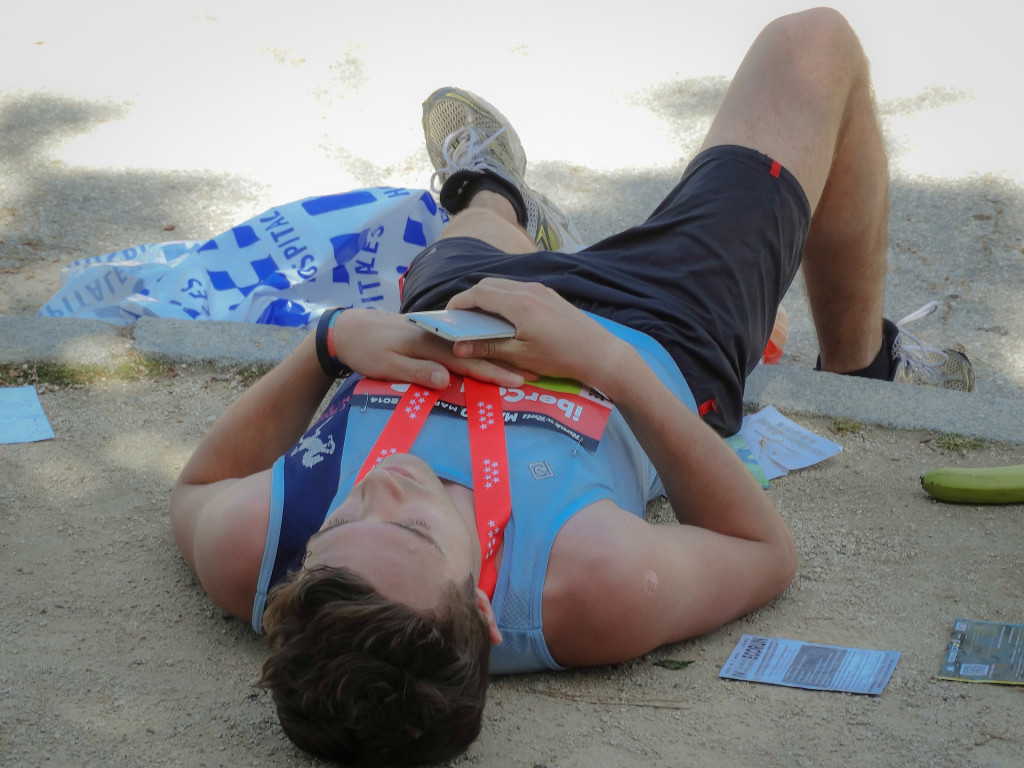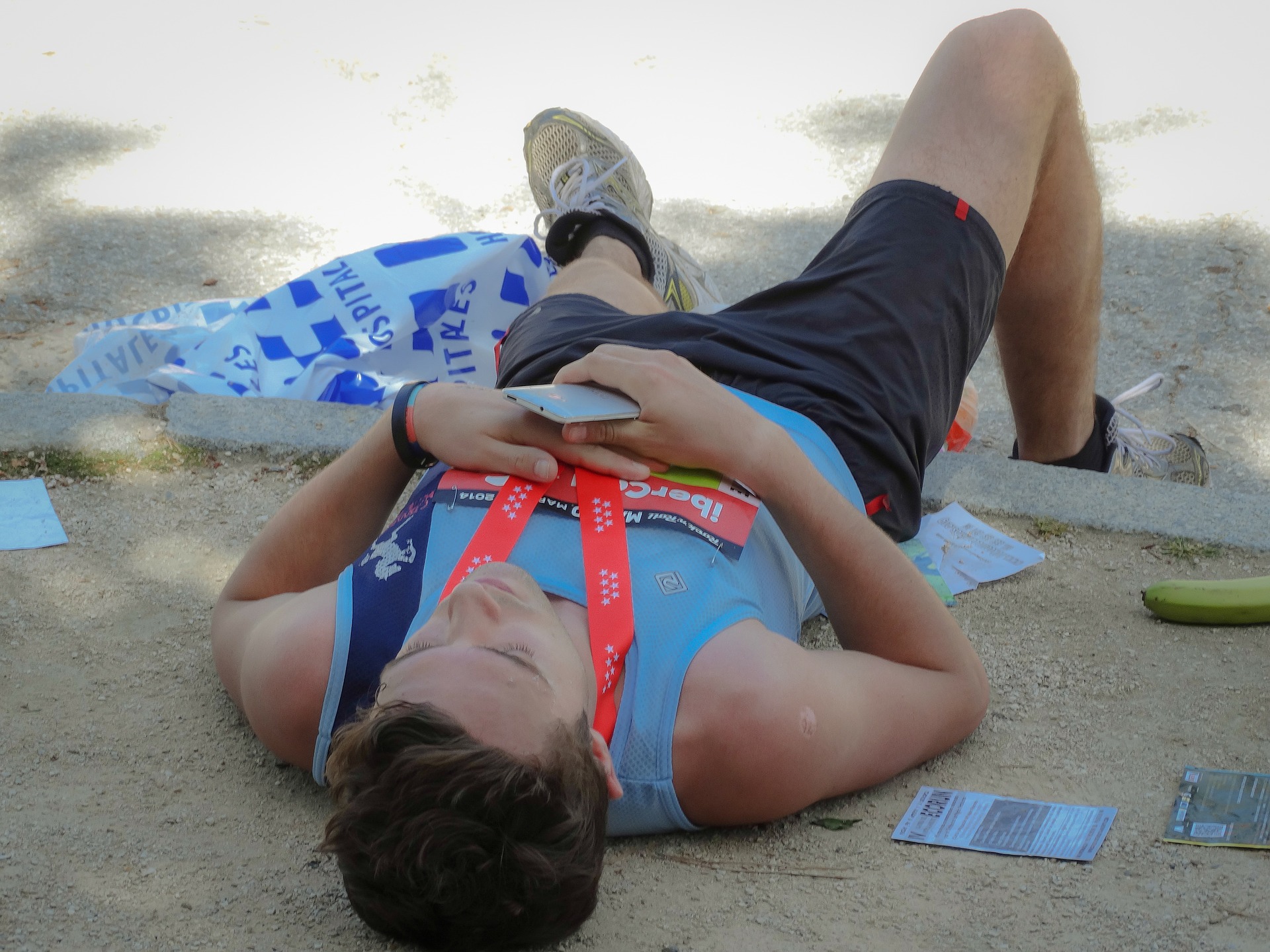The Aid Station: Gut Issues in the Long Run
If you were to ask the question, “what makes a great athlete?” you would get many similar responses like “powerful muscles, high V02 max lungs, and a strong core”. Any references to the digestive tract would not be very high on the list of answers; however, it is one of the most make or break functions on race day. Your digestive tract will either get you to the finish line or sideline you.

The top gut issues that endurance runners encounter are the following:
- Nausea.
At the 1996 Olympics Trials, Bob Kempainen was running the marathon and vomited numerous times from mile 24 through the finish. Kempainen managed to win the race despite vomiting several times over the final miles. What causes nausea in distance runners? The exact reasoning is hard to pinpoint since duration, intensity, elevation, high anxiety settings, weather, and individual factors are all accountable.
One known culprit of nausea is ingesting too much food before or during exercise. In situations such as these, jostling, volume, and what you ingest modifies/delays stomach emptying.
“A study found that consuming a 12 percent carbohydrate beverage caused more nausea than a 6 percent carbohydrate beverage during prolonged cycling in the heat” (European Journal of Applied Physiology and Occupational Physiology 57, no. 5 (1988): 563–569.).
Any nutrient you ingest during exercise should rapidly digest for fast absorption – fast energy. When your fuel is absorbed quickly your performance will sustain.
- Acid Reflux.
“The survey of 707 marathoners discussed earlier in the section on nausea found that 9 percent of runners felt heartburn during training runs” (Wilson Patrick. The Athlete’s Gut (p. 43)).
The intensity of an exercise seems to coincide with the occurrence of reflux. The reduction in gut blood flow is the major cause for reflux. How can you avoid acid reflux while training and on race day?
- Avoid eating a full meal within one to two hours of exercising.
- Choose foods and beverages that empty rapidly from the stomach.
- Fatty and solid protein-rich foods should be strictly limited.
- Pay attention to the carbohydrate concentration of the drinks you consume. Consumption of drinks with more than a 10 percent carbohydrate concentration hinder stomach emptying.
- Avoid citrus, chocolate, spices, alcohol.
- Cramping
Intestinal cramping is common in intense exercise. Cramping is cause by a multitude of things such as dehydration, ingesting concentrated sports drinks, and overconsumption of carbohydrates. If dehydration is the culprit you need to get potassium, sodium, or calcium into your system. A great fuel source in this instance would be bananas, a sports drink, or a gel. Avoidance of fatty, greasy, and high fiber foods are recommended before and during your event.
- Race Day Fueling
As they always say, “never try anything new on race day”. Figuring out a routine that works for your digestive system and keeping that routine during your training and on race days can make stomach issues less of an obstacle for you. Experimenting on your training runs to figure it out which food and drink works for your stomach is imperative for a high performance on race day.
So what works best to give our bodies the energy it need to performance? Carbohydrates and fats make adenosine triphosphate (ATP) and ATP powers everything our bodies do. For running events that last long than a couple of minutes like a 5k, carbohydrate and fat burning is by far the most important sources of ATP production.
While protein plays a major role in muscle repair, protein is not a primary fuel source for muscles during exercise. Fat and protein are not quickly digested by the body and therefore are not a proper source for fuel.
Glycogen (carbohydrates stored in your body) is much more limited in its quantities and therefore it is important to keep “topping off the tank” throughout your run.
There is no real risk of running out of fat stores during exercise, so ingesting fat during your run is not of importance. As it turns out, dietary fat tends to pump the brakes on gastric emptying more than protein and carbohydrate. As a rule of thumb, the more energy-dense a food is, the longer it takes to leave your stomach. While limiting fat consumption within an hour of exercise is sensible. Carbohydrate ingestion during this window clearly improves subsequent exercise performance in comparison to fasting or to consuming an energy-free placebo.
Add Comment
You must be logged in to post a comment.







